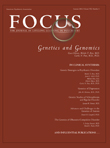Genetics of Depression
Abstract
Depressive disorders are commonly occurring psychiatric conditions that tend to run in families. They are heterogeneous and complex, predicted to involve the interplay between multiple genes and nongenetic risk factors, such as stressful life events. Their phenomenology and biological substrates are not clearly distinguished from those of normal mood states on the one hand and frequently comorbid conditions such as the anxiety disorders on the other, further complicating research into their etiology. Preliminary molecular genetic studies performed over the past several decades have implicated only a modest number of specific candidate genes in major depression, thus far offering little insight into its pathophysiological basis. This leaves open the way for a new wave of large-scale, genome-wide association studies that are providing vastly increased amounts of preliminary data for understanding these important conditions.



